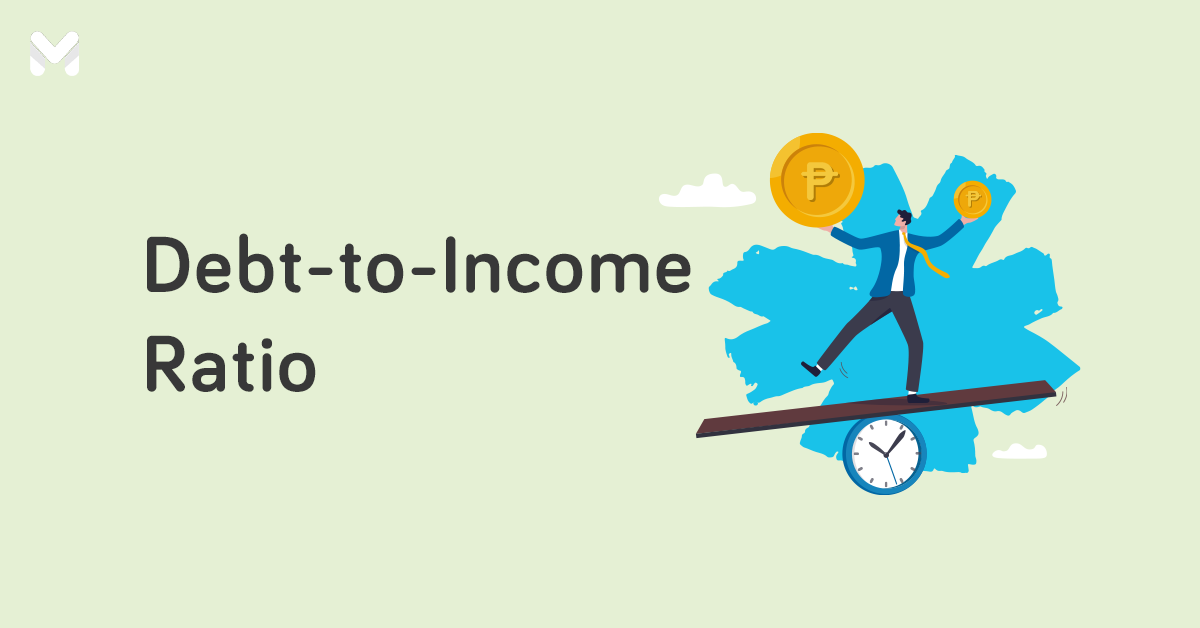A baby is always a blessing. But what if you’re not financially prepared to cover pregnancy and child-rearing costs? With this newborn checklist in the Philippines, you’ll know what to prepare before giving birth. Read on to learn the cost of having a baby in the Philippines.
Pre-Pregnancy OB-Gyne Check-up Cost in the Philippines
Approximate cost: ₱5,000 (depends on your potential health risks and frequency of doctor visits)
Pre-pregnancy involves a few visits to the doctor. It will help identify medical issues that could affect your pregnancy, so you can take precautions and avoid complications.
The doctor will ask about your pregnancy history (if any), medical history, current health issues, diet, lifestyle, and medications or supplements you’re taking. During these consultations, you can also share any mental health concerns.
The total OB-Gyne check-up price in the Philippines will depend on your overall health. For instance, you’ll need pre-pregnancy consultations if you’re 35 years and older with the following conditions:
- Underweight or overweight
- High blood pressure or heart or kidney disease
- Sexually transmitted infection
- Chronic conditions like diabetes, lupus, or HIV/AIDS
- At the risk of having a child with congenital disabilities or a genetic disorder
- History of miscarriages, stillbirths, or premature births
Related article: Planning to Start a Family? Take These Steps to Prepare Financially
Costs During Pregnancy and Newborn Checklist in the Philippines in 2023

The total cost during pregnancy ranges from ₱108,300 to as much as ₱157,600. These include home improvements (to accommodate the newborn), pregnancy clothes and accessories, hospital bags, baby transport, baby care products, and baby food.
But a word of warning: This amount can still go higher because of the rising costs of commodities.
🍼 First Trimester (0 to 3 months) Expenses
Approximate total cost: ₱18,000
Prenatal care ensures your baby gets all the nutrients for development. Depending on your condition, it involves doctor’s visits once or twice a month. The price range for a monthly checkup is ₱200 to ₱500. On average, doctor’s visits during the first trimester cost around ₱600 to ₱1,500.
During the first trimester, your doctor may prescribe pregnancy vitamins or supplements to ensure you and your baby are healthy. Supplements with folic acid, iron, vitamin D, calcium, and protein cost around ₱250 to ₱3,000 per bottle. On average, you should have a budget of about ₱1,500 monthly or approximately ₱4,500 per trimester for prenatal vitamins and supplements.
Other expenses during the first trimester may include house renovations for a baby room. A repainting job for a small room starts at ₱2,000.
Baby essentials in the Philippines are not cheap, so prepare to shell out a minimum of ₱3,000 for a baby crib, ₱3,000 for baby cabinets, ₱3,000 for baby clothes, and ₱2,000 for baby bedding.
Prepare around ₱18,000 for these essentials and prenatal checkup costs in the Philippines during the first trimester.
🍼 Second Trimester (Months 4 to 6) Expenses
Approximate total cost: ₱18,000
The second trimester of pregnancy is from month four to month six or from week 13 to week 28. They say it’s the easiest stage because, at this point, pregnant moms will have already adjusted to the body changes. The fatigue will have also subsided.
However, the second trimester also means more frequent visits to the doctor and the need to purchase maternity clothes.
Assuming that you have a normal pregnancy (no health risks or complications), your supplements and OB-Gyne checkup may cost the same as the first trimester. Your doctor may also recommend a pap smear, amniocentesis, ultrasound, and blood test, which can cost up to ₱5,000.
To sum up, your second-trimester budget will total ₱18,000 with the following expenses:
- Pregnancy checkup price - ₱1,500
- Supplements - ₱4,500
- Maternity clothes - ₱7,000
- Tests - ₱5,000
🍼 Third Trimester (Months 7 to 9) Expenses
Approximate total cost: ₱158,000

The most exciting and perhaps most challenging stage of pregnancy is the third trimester. At this stage, the baby is growing and preparing to leave the womb. It’s also when pregnant women experience abdominal aches, bleeding, contractions, discharges, frequent urination, and many other symptoms.
The third trimester is the most expensive because normal or cesarean delivery is included in the budget. Check 2023 maternity package options in the Philippines by getting referrals from your OB-gyne or friends and family members who recently gave birth. You can also check maternity packages in hospitals[1] in advance to adjust your budget and prepare for it financially.
👉 Normal Delivery
Approximate cost: ₱25,000
The average price for normal delivery in maternity hospitals is around ₱25,000. Meanwhile, the painless normal delivery cost in the Philippines in 2023 can range anywhere from ₱50,000 to ₱120,000. The price varies depending on the maternity hospital (public or private, Metro Manila or provincial), the type of hospital room (ward, small private, suite, etc.), and the number of days you’ll stay in the hospital.
For example, a standard normal delivery at Metropolitan Medical Center costs around ₱30,000 to ₱70,000. At Philippine General Hospital, a maternity package costs around ₱45,000 to ₱60,000. Meanwhile, normal delivery at Makati Medical Center starts at ₱80,000.
If you’re considering giving birth at St. Luke’s Medical Center, the price of a normal delivery ranges from ₱80,000 to ₱87,000. It includes the use of the delivery room, room and board accommodation, medicines, newborn essentials bag, newborn screening, hearing test, and professional fees.[2]
👉 Caesarean Delivery
Approximate cost: ₱150,000
Cesarean delivery or C-section is a surgical procedure used to deliver a baby through incisions in the abdomen and uterus.[3] How much does a cesarean section cost in the Philippines this 2023?
Doctors recommend planned or elective C-sections in certain situations, like multiple pregnancies, a baby with breech presentations, medical issues like high blood pressure, and previous C-sections. On average, a painless cesarean delivery costs ₱150,000, depending on the hospital, doctor’s fees, and recovery room of choice.
A cesarian delivery in private hospitals like St. Luke’s ranges from ₱137,000 to ₱139,000,[4] while a cesarian delivery at the Makati Medical Center costs ₱127,000 to ₱250,000, depending on the mother and the baby’s needs.
In emergency cases, how much is a cesarean delivery in the Philippines?
In case of distress during delivery, the doctor will advise you to undergo an emergency C-section. With this, you'll need to pay more for the emergency procedure.
In 2022, a mom shared how much she spent on an emergency cesarian delivery at Makati Medical Center, where she stayed in a small private room for three days. Her total hospital expense was ₱268,575.27.[5]
Again, how much a CS delivery is in the Philippines will depend on the hospital where you’re giving birth, the doctor's professional fees, how many days you’ll spend in recovery, and the type of hospital room available, just to name a few.
👉 Other Pregnancy Costs
Your budget will still comprise checkups, tests, and supplements in the third trimester. You’ll also need to buy more newborn baby clothes and accessories (₱5,000), a baby stroller (₱4,000), and baby care products (₱15,000).
Some hospitals might still require pregnant women due for delivery to undergo a swab test, which costs around ₱1,000 to ₱5,000.
If you don’t have your own car, you might also need to pay for private transport for your monthly checkups.
🍼 Expenses for Newborn to 1-Year-Old
Approximate total cost: ₱15,000 per month

Whether you decide to breastfeed or bottle-feed, your baby’s first year will require a lot of funds. You need to allot around ₱2,000 each month for newborn screening and monthly checkups.
Here’s how much you’ll spend on newborn essentials in the Philippines:
- Food, baby/postnatal vitamins - ₱4,000
- Diapers and baby wipes - ₱1,000
- Clothes and shoes - ₱2,000
- Checkups and vaccinations - ₱2,000
- Childcare - ₱6,000
On average, parents should allot at least ₱15,000 each month to provide for their baby’s needs from birth until their first year. This, of course, is just an estimate. Costs vary depending on your income and lifestyle.
Good thing you can reduce your expenses in many ways, like breastfeeding or not getting a nanny. That’s thousands of pesos in savings already.
What is the Cost of Having a Baby in the Philippines?
From pre-pregnancy to your baby’s first year, here’s a breakdown of the approximate cost of having a baby in the Philippines:
- Pre-pregnancy - ₱5,000
- First trimester - ₱18,000
- Second trimester - ₱18,000
- Third trimester - ₱158,000
- From birth to baby’s first year - ₱180,000
The total cost of giving birth in the Philippines in 2023 is around ₱379,000.
It’s a significant amount. To save up for pregnancy expenses in the Philippines, expecting parents should set aside ₱31,583.33 every month for one year or around ₱10,530 every month for three years.
🛍️ Fund Big Purchases, Celebrations, and Milestones with a UnionBank Personal Loan!
Buying gadgets, tools, and equipment for work or business? Gearing up for life milestones such as a wedding or a baby? Looking for ways to fund your child's tuition fees? If you want both convenience and high loan amounts, check out what UnionBank has to offer. With a UnionBank Personal Loan, you can borrow funds up to ₱2 million and have your loan disbursed in as fast as 24 hours!
8 Helpful Tips to Reduce Newborn Costs
-Sep-21-2023-02-22-12-4144-PM.png?width=600&height=400&name=Pics%20for%20blog%20-%20600x400%20(22)-Sep-21-2023-02-22-12-4144-PM.png)
Wish hospital expenses would be the last of them? Unfortunately, it just marks the beginning of a very expensive, albeit exciting and fulfilling, chapter of your life. Good thing there are ways to cut the costs of having a newborn.
Here are some of them:
✔️ Use Your Health Insurance Coverage and Maternity Benefits
Most HMOs cover the costs of pregnancy-related laboratory tests and OB-Gyne professional fees in the Philippines, so make sure to avail of these benefits during your pregnancy.
If you don’t have an HMO, shop for health cards for pregnant women in the Philippines that provide unlimited consultations with an OB-Gyne, pediatrician, or other specialists.
To reduce your total hospital bill, make sure to update your PhilHealth contributions. PhilHealth will cover a portion of your hospital expenses when you give birth. You can also avail of this benefit when you give birth at a lying-in clinic, birthing center, or even when you have a home birth.
Once you have your baby’s birth certificate, claim your SSS maternity benefits to help pay for other newborn costs.
✔️ Buy Only What You Need
It’s easy to get carried away when making a baby shopping list for first-time moms. You want only the best for your precious bundle of joy, after all. But come to think of it, does your newborn really need a designer pair of sneakers? They’re adorable, but they’re also ridiculously expensive.
Your newborn will grow out of clothes and shoes fast, so avoid buying garments they’ll wear only a few times. Instead, buy basic newborn garments for everyday wear like onesies, underwear, undershirts, socks, and bibs. Then buy a few outfits for special occasions or for going out.
Read more: 7 Best Websites to Get Baby Essentials in the Philippines
✔️ Ask for Hand-Me-Downs
Remember that a new baby doesn’t mean you have to buy brand-new baby stuff. You can add secondhand items to your newborn essentials checklist in the Philippines without compromising your baby’s health and safety.
Instead of buying everything on your newborn needs checklist, get hand-me-downs from your close friends and family. Cribs, strollers, high chairs, and baby seats are pretty expensive, so it’s great if you won’t have to buy them.
✔️ Go for Multi-Functional Baby Items
When decorating and organizing your baby’s room, go for multi-functional pieces instead of buying one of everything.
For example, choose a crib you can convert into a toddler bed, a baby’s dresser top that can also work as a changing table, or a high chair your child can use as a toddler table and chair later on.
When you buy a car seat, it should easily snap into forward-facing and rear-facing positions both in the stroller and in the car.
✔️ Consider Using Cloth Diapers
If you want to save money and the environment, consider reusable cloth diapers instead of disposable ones. Cloth diapers are more breathable, protecting your baby’s skin from chemicals that cause dryness or irritation.
They may be expensive compared to ordinary diapers, but they’re washable. You can keep using them for years as your baby grows.
✔️ Breastfeed for as Long as You Can
If you want to save thousands of pesos on baby formula, nurse or pump milk for your baby. Breast milk is easier for babies to digest and has antibodies to protect them from viral or bacterial infections. It also has plenty of benefits for mothers, like reduced rates of breast and ovarian cancer.
✔️ Make Your Own Baby Food
There's no better way to give your baby the freshest and healthiest food than by making it yourself.
It’s less expensive than buying baby food from supermarkets. Furthermore, you know firsthand the ingredients and how safe and good they are for your baby.
You don’t need to be a professional chef or nutritionist to make your own baby food. Just steam your vegetables and blend or puree them. For fruits, just slice and puree them until you get the creamy consistency babies love.
✔️ Consider Trusted Family Members for Childcare
One of the biggest concerns working parents face is taking care of their baby once maternity or paternity leave is over. Employing a nanny seems the easiest solution, but it can also cost thousands of pesos per month.
Instead, consider asking one stay-at-home parent or a close family member for help. You’ll enjoy peace of mind knowing that your child is in good hands and also significantly reduce childcare costs. Still, both parents must discuss and agree on this arrangement.
Related reading:
- Sample Family Budget in the Philippines: Managing Household Finances
- Beat Inflation: Tips to Maintain Your Household Budget Amid Price Hikes
Final Thoughts
From budgeting to shaping your child’s character and building their future, parenting is a journey that needs a lot of preparation. Before you decide to get pregnant, consider the cost of raising a child, which involves providing food, education, healthcare, and many others. To prepare, make sure to consult the newborn checklist in the Philippines above.
Still, life is full of surprises, and you can’t always plan for everything. An unplanned pregnancy can significantly affect your budget. Use your maternity benefits to cover the hospital bills, or get a personal loan for your pregnancy and childbirth expenses.
You can compare personal loans easily and for free through Moneymax.
|
Provider
|
Loan Amount
|
Monthly Add-on Rate
|
Loan Term
|
Minimum Annual Income
|
Approval Time
|
|---|---|---|---|---|---|
|
UnionBank Personal Loan
|
Up to ₱2 million
|
26.9% per annum
|
12 to 60 months
|
₱250,000
|
As fast as 5 minutes
|
|
UNO Digital Bank Personal Loan
.png?width=149&height=52&name=Unobank-Logo-Colored_Horizontal-Medium%20(for%20MMX).png) |
₱10,000 to ₱500,000
|
1.79% per month (corresponds to annual contractual rates or annual percentage rates ranging from 35.78% to 37.54%)
|
Six to 36 months
|
₱240,000
|
Five to seven banking days
|
|
Metrobank Personal Loan
|
₱20,000 to ₱2 million
|
1.25% to 1.75%
|
36 months
|
₱350,000
|
Seven banking days
|
|
BPI Personal Loan
 |
₱20,000 to ₱3 million
|
Maximum annual contractual rate of 28.67%
|
12 to 36 months
|
Inquire with BPI
|
Five to seven banking days
|
|
Tonik Credit Builder
 |
₱5,000 to ₱20,000
|
4.84%
|
Six to 12 months
|
Inquire with Tonik
|
Two banking days
|
|
Tala

|
₱1,000 to ₱25,000
|
0.43% daily
|
Up to 61 days
|
None
|
Five minutes to 24 hours
|
|
HSBC Personal Loan
|
₱30,000 to ₱500,000
|
0.65%
|
Six to 36 months
|
₱168,000
|
Five to seven banking days
|
|
CIMB Personal Loan
|
₱30,000 to ₱1 million
|
As low as 0.83%
|
12 to 60 months
|
₱180,000
|
One to two banking days
|
|
Maybank Personal Loan
|
Up to ₱1 million
|
1.3%
|
Up to 36 months
|
₱300,000
|
Inquire with Maybank
|
|
RCBC Bank Personal Loan
 |
₱50,000 to ₱1 million
|
1.3%
|
Six to 36 months
|
₱360,000
|
5 to 7 banking days
|
|
PSBank Personal Loan
 |
₱20,000 to ₱250,000
|
|
24 or 36 months
|
₱180,000
|
Five to nine banking days
|

Sources:
- [1] Maternity Package: Price of Normal and Caesarean Delivery Philippines (Medical Pinas)
- [2] [4] Getting maternity care in time of pandemic (St. Luke’s Medical Center)
- [3] C-section (Mayo Clinic)
- [5] Magkano manganak sa Makati Medical Center? | Hospital bill breakdown | Cesarean delivery (MaineyEnard YouTube Channel, 2022)
DISCLAIMER: This article is created for general information purposes only. The costs provided above are only estimates to guide you in saving and budgeting for your pregnancy and newborn expenses. Your actual expenses will depend on your specific needs and circumstances.







_1200x350.png?width=734&height=214&name=UB_PL_Generic_2_(Jan_2025)_1200x350.png)


